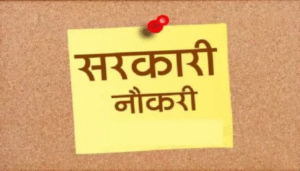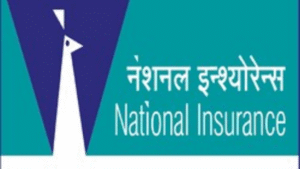The Unseen Burden: Addressing Mental Health and Stress in Exam Prep
The journey to securing a government job in India is often painted with stories of relentless study hours, unwavering determination, and ultimate triumph. What often remains unspoken, however, is the immense mental and emotional toll this path can take. Beyond the visible syllabus and mock test scores lies an “unseen burden” – the pervasive anxiety, the crushing pressure from family and society, and the paralyzing fear of failure. Ignoring these aspects isn’t just detrimental to well-being; it can significantly hinder an aspirant’s performance.

Navigating the Weight of Anxiety
One of the most significant contributors to mental health challenges is anxiety. The sheer volume of information to master, the ever-present competition, and the high stakes of these exams create a constant undercurrent of worry. This anxiety can manifest in various ways: sleepless nights spent replaying doubts, difficulty concentrating even on familiar topics, or even physical symptoms like headaches and digestive issues. It’s crucial for aspirants to acknowledge that this anxiety is a normal response to an abnormal situation. Strategies to manage it include incorporating mindfulness exercises like deep breathing or short meditation breaks into study routines. Regular physical activity, even a brisk walk, can also serve as a powerful stress reliever, helping to break the cycle of anxious thoughts. Importantly, setting realistic daily goals rather than focusing solely on the daunting “finish line” can provide a sense of accomplishment and reduce overwhelming feelings.
Communicating Through Family and Societal Pressure
Adding to this internal struggle is the pressure from family and societal expectations. In many Indian households, a government job is seen not just as a career but as a symbol of stability, prestige, and financial security. This translates into immense expectations from parents, relatives, and even the broader community. Aspirants often feel the weight of their family’s sacrifices and hopes resting squarely on their shoulders. This external pressure can be a double-edged sword: while it can motivate, it can also amplify the fear of disappointing loved ones. Open and honest communication with family is key. Aspirants should try to articulate their feelings, set boundaries where necessary, and explain that their well-being is paramount. Perhaps suggest shared activities unrelated to studies to foster connection and remind everyone that there’s more to life than just exam results.
Reframing the Fear of Failure
Finally, the fear of failure looms large over every government job aspirant. Given the limited number of vacancies and the high volume of applicants, the odds are inherently challenging. This fear can be paralyzing, leading to procrastination, self-doubt, and a reluctance to even attempt exams. It’s vital to reframe failure not as an endpoint, but as a learning opportunity. Every unsuccessful attempt provides invaluable insights into weaknesses, exam patterns, and personal resilience. Focusing on the process of learning and improvement, rather than solely on the outcome, can shift perspective. Creating a “Plan B” or exploring alternative career paths, even if just mentally, can also reduce the all-or-nothing pressure associated with exam results, offering a sense of control and reducing existential dread.
Ultimately, addressing the unseen burden of mental health and stress is not a luxury but a necessity for government job aspirants in India. By proactively managing anxiety through mindfulness and physical activity, navigating family pressure through open communication and boundary setting, and reframing the fear of failure as a stepping stone to growth, aspirants can not only improve their chances of success but also safeguard their well-being. The true triumph lies not just in securing a job, but in emerging from the journey stronger, more resilient, and mentally healthier.




















